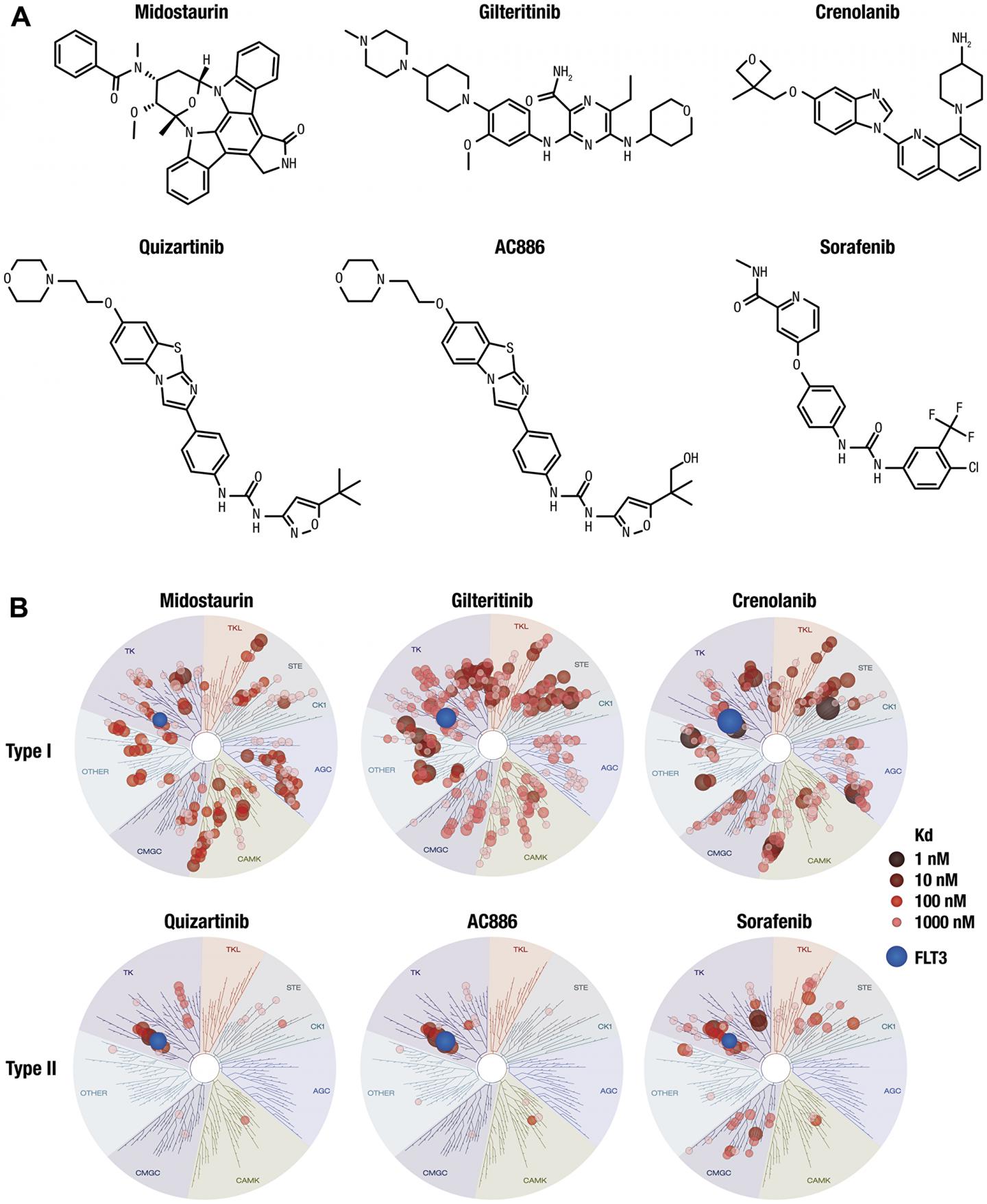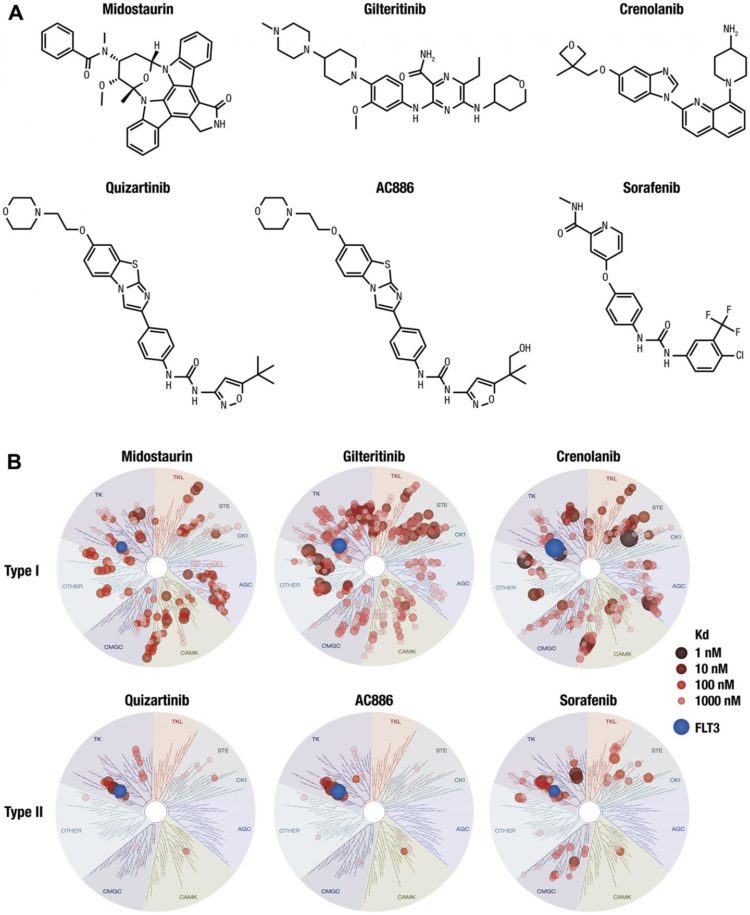Oncotarget Volume 11, Issue 11 reported that in this preclinical study, we characterized the binding affinity and selectivity of quizartinib, a small-molecule inhibitor of FLT3, and AC886, the active metabolite of quizartinib, compared with those of other

Credit: Correspondence to – Takeshi Isoyama – [email protected]
Oncotarget Volume 11, Issue 11 reported that in this preclinical study, we characterized the binding affinity and selectivity of quizartinib, a small-molecule inhibitor of FLT3, and AC886, the active metabolite of quizartinib, compared with those of other FLT3 inhibitors.
Dr. Takeshi Isoyama from Daiichi Sankyo Co., Ltd. said, “FMS like tyrosine kinase 3 (FLT3) is a receptor tyrosine kinase expressed by acute myeloid leukemia (AML) cells in 70% to 90% of patients.“
“FMS like tyrosine kinase 3 (FLT3) is a receptor tyrosine kinase expressed by acute myeloid leukemia (AML) cells in 70% to 90% of patients.”
– Dr. Takeshi Isoyama, Daiichi Sankyo Co., Ltd
FLT3 mutations have been found in approximately 30% of AML cases, with internal tandem duplication, commonly found in the juxtamembrane domain of FLT3, occurring in approximately 25% of cases and mutations in the tyrosine kinase domain present in approximately 5%.
Generally, type II inhibitors are more selective than type I inhibitors, as the inactive conformation preferred by type II inhibitors is thought to be more kinase-specific than the active conformation.
Secondary kinase mutations can emerge in FLT3-ITD AML, resulting in resistance to FLT3 inhibitors, and point mutations that confer resistance to a certain FLT3 inhibitor tend to have cross-resistance to other drugs in the same class.
Limited data exist on the efficacy of available FLT3 inhibitors in patients with AML that was relapsed or refractory to first-line midostaurin-based therapy, and strategies to overcome resistance mutations, such as a combination of inhibitors or use of more potent FLT3 inhibitors, are being evaluated.
The objectives of this preclinical study were to characterize the kinase binding affinity and selectivity of quizartinib and its active metabolite AC886 compared with those of other FLT3 inhibitors, to evaluate the antitumor effect of quizartinib on midostaurin-resistant AML cells, and to assess the impact of midostaurin resistance on FLT3 inhibitors.
The Isoyama Research Team concluded in their Oncotarget Research Paper, “we have demonstrated the high affinity and selectivity that quizartinib and its active metabolite AC886 have for FLT3 and that quizartinib maintains preclinical antitumor activity against midostaurin-resistant tumor models. Additional clinical trials will be needed to clarify and optimize the role of quizartinib in the treatment of patients with relapsed or refractory AML who have previously been treated with midostaurin.“
Sign up for free Altmetric alerts about this article
DOI – https:/
Full text – http://www.oncotarget.com/index.php?journal=oncotarget&page=article&op=view&path[]=27489&path[]=90090
Correspondence to – Takeshi Isoyama – [email protected]
Media Contact
Ryan James Jessup
[email protected]
202-638-9720
Original Source
http://www.
Related Journal Article
http://dx.





